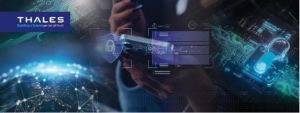Share this article
We've seen a 25 percent rise in ransomware attacks in the first quarter of 2021 when compared to Q4 of 2019. Others like phishing attacks and distributed denial-of-service (DDoS) attacks are also taking on more sophisticated forms and attacking new threat vectors across remote working environments.
Data by Atlas VPN shows that Google identified a 350 percent increase in phishing websites in 2021 from January to March. Even more alarming is that 4.83 million DDoS attacks took place in the first part of 2021. Because you can't implement each new security technology immediately when it's released, it's vital to enforce a few key cybersecurity practices to fortify your network – for quick results, an outsourced Security Operations Centre (SOC) can take care of some of these for you.
These are:
Manage the setup, implementation and logging of early threat detection systems:
Preventing a threat is better than having to find its cure, and it's vital that you detect and stop incoming threats before they infect your network. A SOC can build and manage user and event behaviour logging systems as an early threat detection and prevention system. With this access, the SOC can construct a baseline that is normal user behaviour patterns. In case of any anomalous behaviour on your network, the SOC will identify the alert and inform the business accordingly – while remediating the threat. This is particularly useful for thwarting insider attacks or sophisticated offshore attacks that are circulating across the country.
Configure and implement incident response:
Creating an incident response plan that is executed when a threat is discovered can help contain the threat and block it from infecting the entire network. Once the incident response plan is created, the SOC can act as your managed service to act on a series of containment and elimination measures that prevent a potential threat from spreading and infecting the network. This response plan will be implemented by the SOC team to ensure your staff can continue their normal roles with minimal impact and is automated so that you benefit from an immediate reaction to the threat.
Patch and Manage Endpoint Threat Detection:
Endpoint Detection and Response is a crucial element of any cybersecurity plan. Effectively protecting your endpoint devices, like servers, laptops, and desktops, includes setting up firewalls, antivirus solutions, and email filters. Often businesses try and DIY it, which results in poor patch management or outdated license systems. A managed SOC service will be able to manage and implement all of your endpoint detection systems, as well as expand this protection to your cloud resources as well.
Ensure rules are correlated and configured:
With 24/7 network monitoring enabled via the SOC, continuous detection and correlation rule management allows fast and efficient detection of the most recent threats. This helps you see the bigger picture and identify attack campaigns against your organisation. A lot of SIEM solutions provide you with the option to build customised correlation rules that can be tailored to fit your business's needs, however, without the expertise of a SOC team, often businesses do this incorrectly and leave the security strategy at risk.
Management of multi-factor authentication for users in your domain:
With sophisticated password-cracking software available, it's not hard for hackers to obtain a password. You need more than one way of authenticating users into your domain and this is often a laborious job for any internal Security Manager or IT team. A SOC team can design, implement and manage authentication systems that make it difficult for threat actors to impersonate your identity or that of your onsite and remote working staff. Multi-factor authentications are part of many compliance laws, so that is another item checked off your compliance checklist
These benefits are not an exhaustive list, and are not limited in their benefits – however, the continual presence of a 24/7 available SOC team should be a part of your cybersecurity plan. You should keep in mind that cybersecurity strategies are constantly evolving according to business needs and that new threats constantly appear therefore the added expertise of a SOC and its people will help you maintain a cyber-resilient business.
Contact us
Speak with a Thales Cyber Services ANZ
Security Specialist
Thales Cyber Services ANZ is a full-service cybersecurity and secure cloud services provider, partnering with clients from all industries and all levels of government. Let’s talk.




